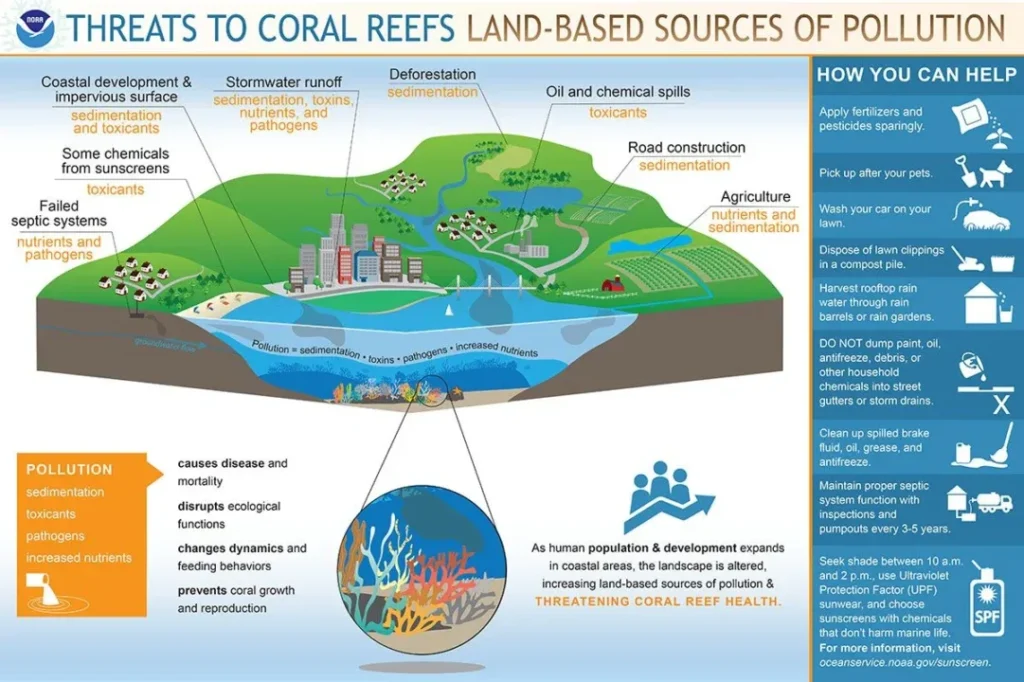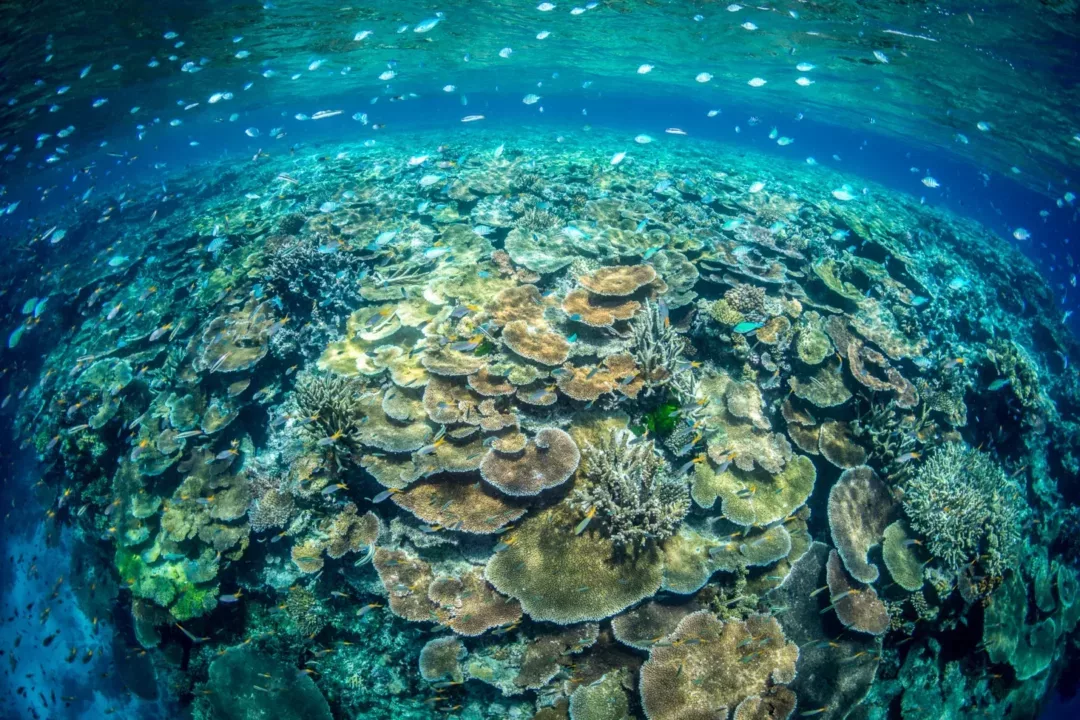The impacts of Land-Based Sources of Pollution on coral reefs are profound and multifaceted, contributing significantly to their degradation worldwide. Runoff containing sediment, nutrients, pesticides, and industrial waste from human activities such as agriculture, urban development, and manufacturing can lead to sedimentation, nutrient enrichment, and chemical contamination in reef environments. These pollutants disrupt the delicate balance of coral reef ecosystems, causing coral bleaching, reduced growth rates, altered species compositions, and increased susceptibility to diseases. Additionally, land-based pollution can exacerbate the effects of climate change and ocean acidification, further jeopardising the health and resilience of coral reefs, which are vital marine ecosystems supporting diverse marine life and providing essential ecosystem services. Addressing these sources of pollution through improved land-use practices, wastewater management, and policy interventions is crucial for the preservation and restoration of coral reef ecosystems.

In order to increase awareness about the impacts of Land-Based Sources of Pollution on coral reefs, ICRI hosted a #ForCoral webinar in collaboration with the Reef Resilience Network, and ICRI member UNESCO. Throughout the webinar, there was rich discussion on the impacts of poor water quality on coral reefs and the varying actions being undertaken to address the sources of pollution around the world. Yasiel Figueroa (Protectores de Cuencas), presented an integrated ridge-to-reef monitoring framework to track the reduction of land-based pollutants and their impact on Caribbean near-shore ecosystems in Culebra, Puerto Rico, with Martina Prazeres (Great Barrier Reef Marine Park Authority) showcasing the work being undertaken to monitor water quality and its impacts in the Great Barrier Reef World Heritage site. Then we heard from Kim Falinski (The Nature Conservancy) on the E Ola Olowalu, a vision to protect a critical reef in West Maui, followed by Amelia Wenger (Wildlife Conservation Society) to highlight the recently released toolkit: A guide for pollution assessment and monitoring in coastal ecosystems. The webinar concluded with remarks from Dr. Fanny Douvere (UNESCO) emphasising that land and ocean are interconnected, and it is impossible to protect the ocean area without looking at what occurs on land.
The webinar emphasised the need for coordinated efforts amongst scientists, policymakers, practitioners, and local communities to mitigate the impacts to, and secure the long-term survival of, coral reefs.
Should you have missed the webinar, the presentations, meeting recording and useful resources are available to download and review: https://icriforum.org/events/forcoral-webinar-impacts-of-land-based-sources-of-pollution/

